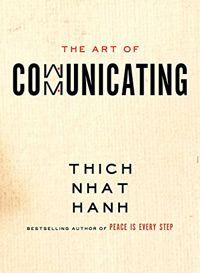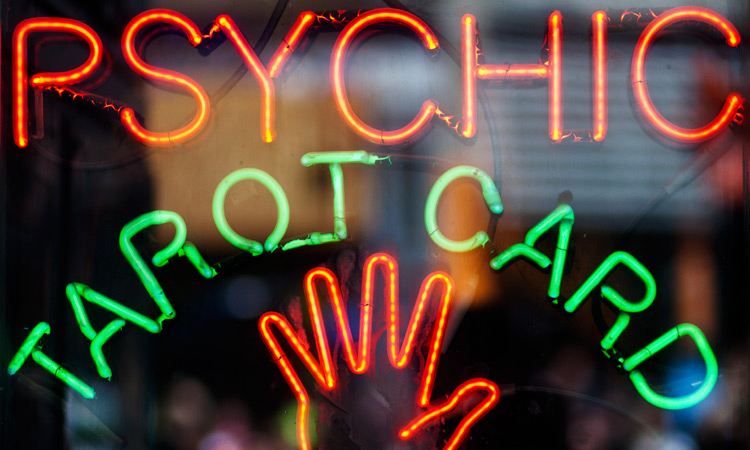Why can’t he just understand what I’m saying?…I’m being as clear as I can be…Why can’t he hear what I’m saying? Why isn’t she paying attention to me?…What the heck is the problem? Ever find yourself standing across from someone, arms crossed in frustration, asking yourself these questions, wondering if you need to learn how to read minds? The perils of miscommunication don’t exactly allow for inner peace. But it happens not just to me but to everyone: the inability to be understood and to understand, and boy can it be frustrating!
 I just finished reading this inspiring and enlightening guide, The Art of Communicating, by Thich Nhat Hanh, a Buddhist Zen master nominated for the Nobel Peace Prize by Dr Martin Luther King Jr and the author of many other illuminating books. Thich Nhat Hanh explains how we can listen mindfully. And what a good thing that would be if we all did! Can you imagine how many misunderstandings and feelings of frustration would be avoided if we all just learned to listen, I mean, really listen, to each other. I admit, it’s not always so easy but honestly I’ve found it helpful and today I’m probably one of the best listeners I know.
I just finished reading this inspiring and enlightening guide, The Art of Communicating, by Thich Nhat Hanh, a Buddhist Zen master nominated for the Nobel Peace Prize by Dr Martin Luther King Jr and the author of many other illuminating books. Thich Nhat Hanh explains how we can listen mindfully. And what a good thing that would be if we all did! Can you imagine how many misunderstandings and feelings of frustration would be avoided if we all just learned to listen, I mean, really listen, to each other. I admit, it’s not always so easy but honestly I’ve found it helpful and today I’m probably one of the best listeners I know.
Nourishment, not ‘french fries’
“Nothing can survive without food,” he notes, adding that communication can either be nourishing or toxic. “We tend to think of nourishment only as what we take in through our mouths, but what we consume with our eyes, our ears, our noses, our tongues, and our bodies is also food. …When we say something that nourishes us and uplifts the people around us, we are feeding love and compassion. When we speak and act in a way that causes tension and anger, we are nourishing violence and suffering. We often ingest toxic communication from those around us and from what we watch and read.” That includes the Internet, which he says can (not surprisingly) leave us meandering mindlessly through cyberspace. “When you work with your computer for three or four hours, you are totally lost. It’s like eating french fries. You shouldn’t eat french fries all day, and you shouldn’t be on the computer all day.”
Mindful awareness: Teflon for toxins
How can you tell what communication is healthy and what is toxic? By practicing mindfulness, “a necessary ingredient in healthy communication.” By being mindful, he says, we can notice whether a thought we have is “healthy or unhealthy, compassionate or unkind.”
It can also serve as a way for us to practice compassion with ourselves by protecting us from ingesting communication toxins. “When you have a conversation with another person,” he adds, “what that person says may be full of toxins, like hate, anger, and frustration. When you listen to what others say, you’re consuming those toxins. You’re bringing toxins into your consciousness and your body.…You need to have enough mindful awareness not to absorb these kinds of suffering.”
Loving speech throws open the doors to communication
So how do we practice healthy, compassionate and mindful communication? Thich Nhat Hanh offers the following six mantras:
The first mantra “I am here for you.…Nothing is more precious than your presence.…fresh, solid, free, and calm, and you offer it to your loved ones to increase their happiness and your own happiness.”
The second mantra “I know you are there, and I am very happy. You are letting your loved one know that his or her presence is important to your happiness.” Use the second mantra, he says, after you have practiced the first and are truly there in the here and the now. “Embraced by your mindfulness, the other person will bloom like a flower.”
The third mantra “I know you suffer, and that is why I am here for you. Thanks to your mindfulness, you know that something is not going well with your friend or loved one.”
The fourth mantra “I suffer, please help” can be used when someone hurts us, such as when someone says something critical or dismissive. “If we suffer, and we don’t look deeply into our suffering and find compassion for ourselves and the other person, we may want to punish the person who hurt us because he or she has dared to make us suffer.” He adds, “to say ‘I don’t suffer; I don’t need your help’ is not the language of true love. The next time you suffer, and you believe it’s the other person’s fault and that she is the cause of your suffering … practice the fourth mantra.”
The fifth mantra “This is a happy moment” can be used when we are with someone we care about “to remind ourselves and the other person that we are very lucky, that there are so many conditions of happiness that are available in the here and the now.”
The sixth mantra “You are partly right” can be used when someone praises or criticizes you. “If you praise me, I shouldn’t get too puffed up and ignore the fact that in me there are also challenges. When you criticize me, I shouldn’t get lost in that and ignore the positive things.…In this way you retain your humility. You don’t become the victim of a prideful illusion, because you know that you’re not perfect.”
Turn perilous communication positive
Mindful listening is an important skill, perhaps the most important one when it comes to relationships of any kind. And while it may take practice and dedication, isn’t it worth it to help us move beyond frustrations of misunderstandings, and change how we experience and interact with the world from perilous to positive?

Rose Caiola
Inspired. Rewired.
To find out about Rose’s thoughts on how to live a happier life, click here
Post Disclaimer
This content is for informational purposes only and does not constitute medical advice. Please consult a healthcare professional for any medical concerns.



